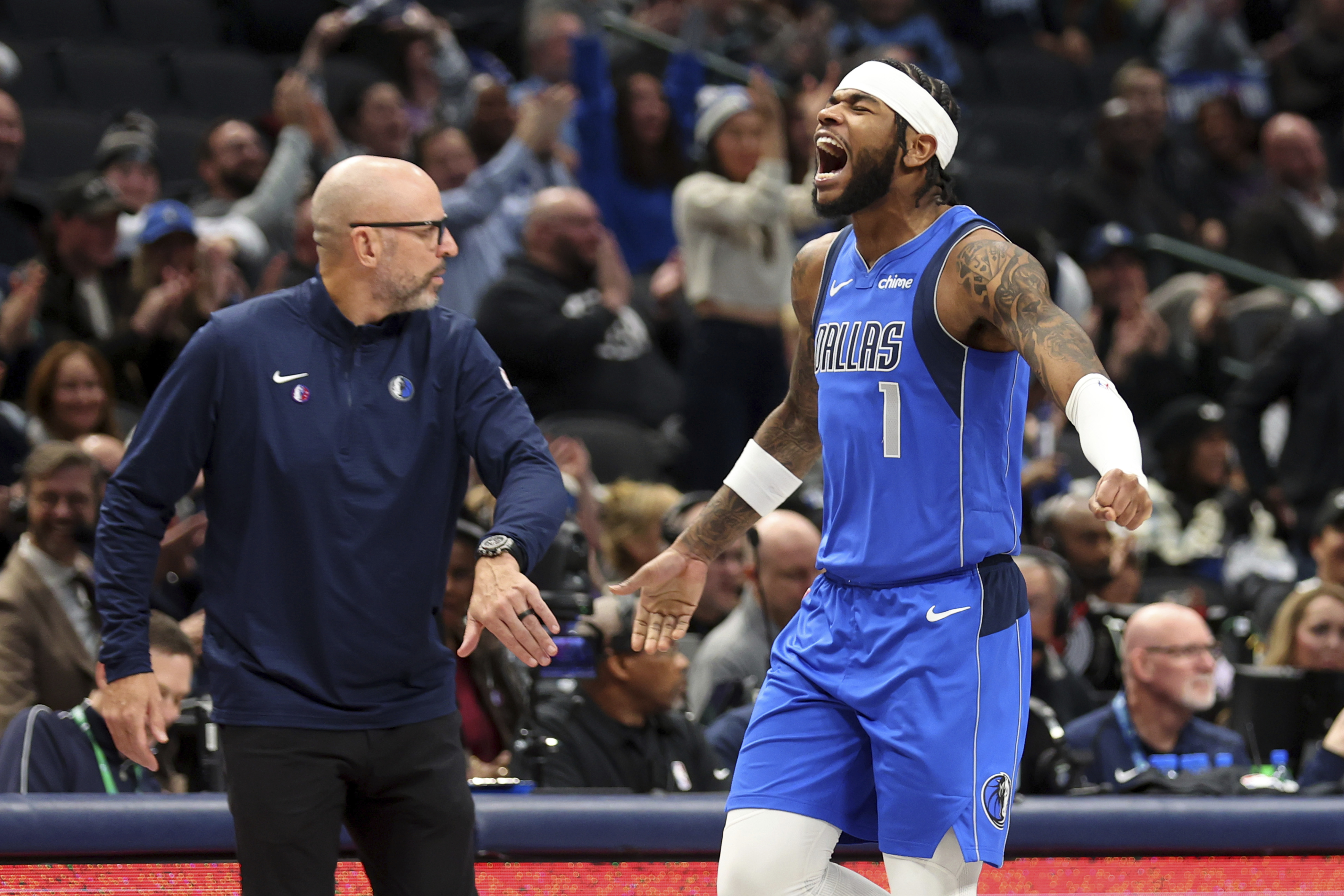Luka Doncic of the Dallas Mavericks is the latest professional athlete whose home has been burglarized.
The star guard's business manager told multiple media outlets Saturday there was a break-in at Doncic's home. Lara Beth Seager said nobody was home at the time of the incident Friday night, and Doncic filed a police report.
Jewelry valued at about $30,000 was stolen, the Dallas Morning News reported, according to an internal police report it obtained.
Doncic, 25, who is from Slovenia, is the sixth known pro athlete in the U.S. whose home was burglarized since October. Star NFL quarterbacks Patrick Mahomes of Kansas City and Joe Burrow of Cincinnati are among them, along with Mahomes' tight end, Travis Kelce.
Get top local stories in DFW delivered to you every morning. Sign up for NBC DFW's News Headlines newsletter.
The others were Milwaukee Bucks forward Bobby Portis and Minnesota Timberwolves guard Mike Conley Jr.
The NFL and NBA issued security alerts to their players after the break-ins, some of which have come when players were away with their teams for road games. The NFL's alert says homes of professional athletes across multiple sports have become “increasingly targeted for burglaries by organized and skilled groups.”
Burrow lamented a loss of privacy over having to acknowledge that he was the victim of a break-in.
Sports Connection
Connecting you to your favorite North Texas sports teams as well as sports news around the globe.
The incident at Doncic's home came two days after the five-time All-NBA player strained his left calf in a Christmas Day loss to the Timberwolves. The injury is expected to sideline Doncic for about a month.
SECURITY EXPERT WEIGHS IN
Ronnie Padron, owner of Quality Security in Texas, said typically, burglars are opportunists.
"They're going to look for an opportunity that you leave your car unlocked, that they get the remote to your house and get into your garage. Maybe they happen to be driving by, and the lights are off," he said.
But in these cases, Padron said, burglars can easily access information on high-profile victims online or find out about schedules in other ways.
"People may listen in to the fact that somebody's away or somebody is on vacation or they're in the game. And that gets picked up, maybe accidentally through a cell phone call at the car wash or anything else," he said.
That leads to a more elaborate robbery involving multiple people, he said.
"Surveillance is done, the possibility of, who knows, disguises, the possibilities of tampering with alarm system experts," Padron said.
Padron said burglars are banking on the fact that these athletes have expensive products easily accessible in their homes.
"For somebody who's cut the alarm and gotten in, it could be a quick $50,000, $60,000 grab with very little effort," he said.
He said burglars always want the least resistance for the most loot-- which means making sure no one's home, as was the case for the Doncic home.
According to an NBA memo obtained by NBC News last month, in all of the incidents until that point, per the FBI, the homes were unoccupied.
The memo warned players to protect their valuables against "well-organized, sophisticated" transnational crime rings, citing a briefing from the FBI.
In the memo, NBA Senior Vice President and Chief Security Officer Leon Newsome said according to the FBI, "The [South American Theft Groups] are primarily focused on cash and items that can be resold on the black market, such as jewelry, watches, and luxury bags." The memo was sent before Doncic's home was hit.
Dallas police said whether his home is related to the other burglaries is still part of the ongoing investigation.
Padron said some may be copy-cats.
"All the information that they need is online. So, if other guys are doing it, why not me?" he said.
He said that's why athletes may want to consider an armed security guard for their homes.
"If it works for somebody and obviously it's worked multiple times, now it's the turn of the individuals to sit at home, look at their spouses, look at their families and say, 'Hey, it's a possibility we could be next,'" Padron said.
___
AP NBA: https://apnews.com/hub/NBA



